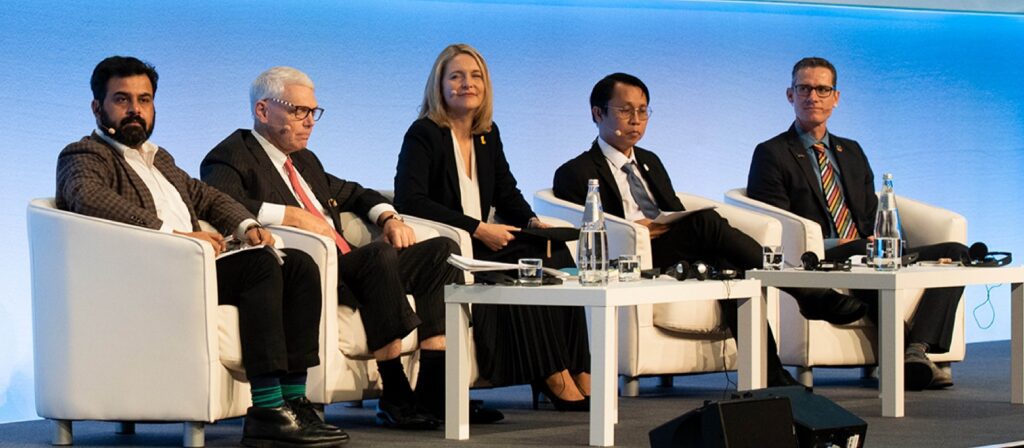In the evolving landscape of global risks, the insurance industry plays a crucial role in enhancing societal resilience against disasters. The shift from a reactive post-disaster response to a proactive prevention and resilience-building approach is underscored by initiatives like the United Nations Office for Disaster Risk Reduction (UNDRR) and the Sendai Framework, emphasising the insurance sector’s pivotal role in sustainable development. The Insurance Development Forum (IDF), established as a collaborative effort among major global entities including the UN Development Programme, seeks to bridge the protection gap— the disparity between economic losses and insured losses from disasters. This initiative, focusing on integrating insurance solutions into broader risk management and climate adaptation strategies, marks a significant step towards mitigating climate change impacts and enhancing global resilience. Alongside, the Global Resilience Index Initiative (GRII) aims to provide consistent data on physical risk and resilience, facilitating informed decision-making across the financial sector. These efforts, together with a comprehensive approach that includes nature and ecosystem services, highlight the insurance industry’s commitment to fostering a resilient, adaptable future in the face of increasing climate volatility and systemic risks.
The United Nations Office for Disaster Risk Reduction (UNDRR) emphasises the vital role that businesses, particularly insurers, play in building resilience and contributing to sustainable development. The decisions made by insurers shape how society prepares for, responds to, and recovers from disasters…
Session speakers:
- Sarah Wade-Apicella, Head of Partnerships, UNDRR – Building a Resilient World
- Saoirse Jones, Head of IDF Engagement, Zurich Insurance (Switzerland) and Co-Chair, Insurance Development Forum (IDF) DRR Task Force (Switzerland)
- Nicola Ranger, Director Resilience Finance Lab, Oxford, GRII
Member only content
Access the full member-only content
This is an abridged version. To access the full article/recording, please complete the form above to request the link to the full version being sent directly to you, or visit the member-only link for the ICMIF Knowledge Hub (for more details of how ICMIF members can access this please click here or contact ICMIF).


